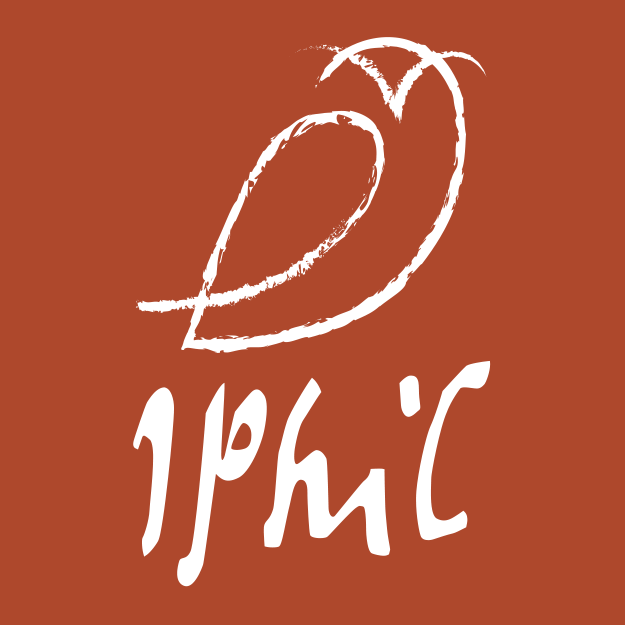Ongoing Projects
-
GenCamp25 – Generationengerechtigkeit und kommunale ProjektarbeitDas vom BMBF als DATIpilot-Innovationssprint geförderte Projekt GenCamp25 arbeitet an der Entwicklung eines digitalen GenerationenCampus. Als Wissensspeicher unterstützt der Campus kommunale Projekte im Bereich der Generationenarbeit. Theoretisch steht die Frage im Mittelpunkt, wie Erkenntnisse aus dem Bereich der politischen Philosophie und der Gerechtigkeitstheorie mit Gewinn in kommunale Praxiskontexte eingebracht werden und die Projektarbeit bereichern können. Das Projekt ist eine Kooperation des Instituts für Philosophie der LUH mit dem Verein BildungsCent e. V., Berlin.Led by: Dr. Johannes Müller-SaloYear: 2024Funding: BMBF, DATIpilot InnovationssprintDuration: 2024-2026
-
SOCRATES – Social Credibility and Trustworthiness of Expert Knowledge and Science-Based InformationSOCRATES is a Centre for Advanced Studies funded by the German Research Foundation (DFG) (KFG43; funding period 2023-2027). It provides a forum for interdisciplinary exchange on scientific credibility and trust in science. SOCRATES is headed by Prof. Dr. Mathias Frisch (as speaker) and Prof. Dr. Torsten Wilholt.Led by: Prof. Dr. Mathias Frisch, Prof. Dr. Torsten WilholtTeam:Year: 2023Funding: German Research Foundation (DFG)Duration: 01.10.2023-30.09.2027
-
MODEL TRANSFER – Model Transfer and its Challenges in Science: The Case of Economics‘Model Transfer and its Challenges in Science: The Case of Economics’ is an ERC-funded project that develops and applies conceptual and computational tools to study how scientific models are transferred across disciplinary domains. Model transfers between economics and other social, natural, and formal sciences will serve as exemplary case studies. The project is led by Prof. Dr. Catherine Herfeld. Team members include Dr. Edoardo Peruzzi and Murat Bakeev.Led by: Prof. Dr. Catherine HerfeldTeam:Year: 2023Funding: European Research Council (ERC) Starting GrantDuration: 04.2023-03.2028
-
A Philosophical Approach to Biasing Mechanisms in Scientific ResearchThis is a joint research project by Prof. Dr. Torsten Wilholt and Prof. Dr. Manuela Fernández Pinto of the Centre for Applied Ethics at the Universidad de los Andes (Bogotá, Kolumbien). It is funded by the German Research Foundation (DFG).Led by: Prof. Dr. Torsten Wilholt, Prof. Dr. Manuela Fernández PintoTeam:Year: 2022Funding: German Research Foundation (DFG)Duration: 2022-2025
Completed Projects
-
DFG-Graduiertenkolleg 2073The Institute of Philosophy in Hannover, together with the Philosophy Department in Bielefeld, established a graduate school in 2015 centred around the theme "Integrating Ethics and Epistemology in Scientific Research".Led by: Prof. Dr. Torsten WilholtTeam:Year: 2015Funding: German Research Foundation (DFG)Duration: 01.10.2015–30.09.2024
![Logo of the GRK2073]()
![Logo of the GRK2073]()
-
BIASThe project "Bias and Discrimination in Big Data and Algorithmic Processing, Philosophical Assessments, Legal Dimensions, and Technological Solutions (BIAS)", received funding from the Volkswagen Foundation in 2018. Prof. Dr. Dietmar Hübner is the leader of this project.Led by: Prof. Dr. Dietmar Hübner; Prof. Dr. Uljana Feest; Prof. Dr. Mathias FrischTeam:Year: 2019Funding: Volkswagen FoundationDuration: 2019-2023
-
Machine Discovery and Creation (MDAC)The MDAC (Machine Discovery and Creation) project focuses on philosophical, epistemological and ethical questions raised by artificial intelligence (AI) in two areas: in science, AI is now used for a variety of knowledge-generating tasks, such as predicting protein structures for developing new vaccines or restoring ancient inscriptions and making inferences about past societies. And in creative spaces, generative AI is increasingly used to produce novel and convincing text and imagery for a variety of artistic and commercial purposes. MDAC seeks to make philosophical contributions to and facilitate interdisciplinary discussion of a range of novel epistemological, ethical and legal questions raised by these developments, such as: can machines be creators and discoverers in their own right? What attributes and virtues, e.g. imagination, autonomy or humility, do AI systems require to make significant contributions to artistic and scientific pursuits? Can generative AI used in science produce evidence, on par with material evidence or expert judgment, or can it merely produce hypotheses we might seek evidence for?Led by: Dr. Donal Khosrowi; Dr. Finola FinnTeam:Year: 2023Funding: LUH Flexible Funds
-
Digital Contact Tracing, Privacy, and Discrimination: On the Ethics of Fighting CoronaDuring the course of the COVID-19 pandemic, measures that would normally be unthinkable in liberal democracies, such as lockdowns, curfews, bans on free assembly, and digital contact tracing, have been implemented in many countries. The aim of this project is to investigate what kind of measures are justifiable in the exceptional circumstances of a pandemic. In this investigation, we focus in particular on digital contact tracing, weighing the efficacy of various configurations, and their possible implications for, among other things, privacy violations.Led by: Prof. Dr. Mathias FrischTeam:Year: 2021Funding: Volkswagen FoundationDuration: 2021-2022
-
Scientific Experts and the Pressures of Pandemic Policy AdviceThis project analyses how scientific expertise and trust can be generated under conditions of deep uncertainty and urgency, as illustrated by the current phase of the Covid-19 pandemic. It aims to develop a set of principles for guiding scientifically informed public debate and policy advice. Pooling the resources of philosophy of public health, philosophy of science, and social epistemology, the project fosters a critically informed public understanding of the science/public-policy interface.Led by: Mathias FrischTeam:Year: 2021Funding: Volkswagen Foundation
-
Crash Algorithms for Autonomous CarsThe Institute of Philosophy has been a part of the project MOBILISE - Mobility in Engineering and Science since 2017. The Institute of Philosophy is responsible for the philosophical subproject "Crash Algorithms for Autonomous Cars" under the leadership of Prof. Dr. Dietmar Hübner, in area DI-4 "Mobiler Mensch".Led by: Prof. Dr. Dietmar HübnerTeam:Year: 2017Funding: Wissenschaftsallianz Braunschweig - HannoverDuration: 2017-2020
-
InRes"The Independence of Research as a Multilevel Problem: Interdisciplinary and Methodological Challenges" is a multi-institute project, coordinated by the university of Mainz, that has been running since 2015, and is funded by the Volkswagen Foundation. Institute-member Prof. Dr. Torsten Willholt is involved in this project.Led by: Prof. Dr. Klaus LiebTeam:Year: 2015Funding: Volkswagen FoundationDuration: 2015-31.10.2019 (individual projects will run longer)


